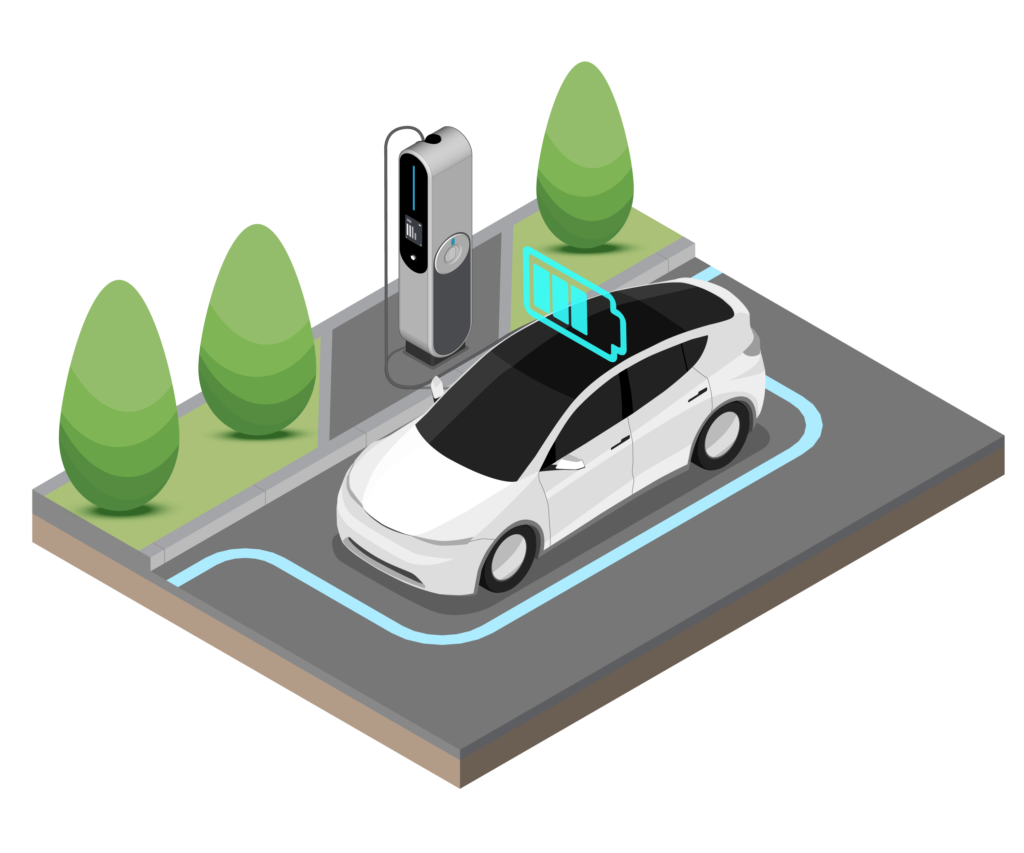Go Green, Go More, Pay Less
Sustainability And Innovation: How Electric Vehicles Are Changing The World
April 16 | Written By Golden Horse

In recent years, the surge in environmental awareness coupled with technological advancements has significantly accelerated the adoption of electric vehicles (EVs). This shift is transforming the automotive landscape, impacting economic policies, urban planning, and most importantly, contributing to global sustainability efforts. Here’s a deeper look at how electric vehicles are playing a pivotal role in shaping a more sustainable and innovative future.
Reducing Carbon Footprint
Electric vehicles are central to reducing the transportation sector’s carbon emissions. Traditional internal combustion engine vehicles rely on petroleum-based fuels, emitting significant amounts of carbon dioxide and other greenhouse gases. In contrast, EVs, when powered by renewable energy sources, offer a substantially cleaner alternative. Even when the electricity comes from non-renewable sources, EVs tend to have a lower overall carbon footprint. The widespread adoption of electric vehicles can drastically decrease air pollution in urban areas, contributing to healthier communities and ecosystems.
Stimulating Technological Innovation
The rise of EVs has spurred an array of technological innovations, particularly in battery technology and energy management systems. Lithium-ion batteries, which power most electric vehicles, have seen rapid advancements in energy density, longevity, and charging speed. Companies are also exploring alternative battery technologies like solid-state and lithium-sulfur to overcome current limitations and reduce reliance on rare earth elements. Additionally, innovations such as regenerative braking systems have further enhanced the efficiency of EVs.
Impact on Energy Grids and Infrastructure
The integration of electric vehicles poses new challenges and opportunities for energy grids. EVs can potentially serve as mobile energy storage units that can feed electricity back into the grid during peak demand periods, a concept known as vehicle-to-grid (V2G) technology. However, the growing number of EVs also demands more robust and smart grid systems to manage the increased load and to facilitate efficient energy use. Governments and companies are investing in EV charging infrastructure, promoting the installation of public and home charging stations equipped with fast-charging technology.
Economic Shifts and Job Creation
The electric vehicle revolution is reshaping the global economy. As demand for petroleum decreases, energy markets are adjusting, with increased investments flowing into renewable energy sectors. The EV market itself is fostering new job opportunities in research and development, manufacturing, and maintenance services. Furthermore, the decline of conventional auto industry jobs is being offset by new careers in the EV sector, which requires a different set of skills and expertise.
Policy and Regulatory Influence
Governments worldwide are supporting the transition to electric vehicles through various incentives and regulations. Tax rebates, grants, and subsidies for EV buyers and manufacturers are common strategies to promote EV adoption. Moreover, many countries have set ambitious targets to phase out the sale of gasoline and diesel cars in the coming decades, pushing automakers to pivot towards electric models. These policies not only encourage consumer adoption but also drive industry innovation and investment in clean technologies.
Conclusion
Electric vehicles are more than just an alternative to traditional cars; they are a cornerstone of a sustainable future. By promoting cleaner energy sources, driving technological progress, and reshaping economic landscapes, EVs are at the forefront of the global shift towards environmental sustainability. As the world continues to embrace electric vehicles, we move closer to achieving reduced greenhouse gas emissions, cleaner air quality, and a more resilient energy system. The path forward is electrifying, and the impact of electric vehicles will undoubtedly be profound as we steer towards a greener planet.
